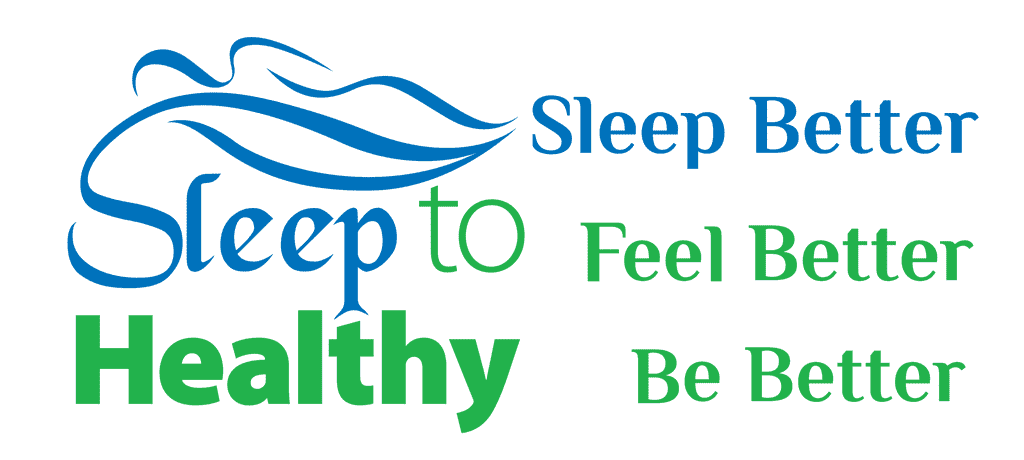Click title to see more…
The Sleep to Healthy website is now a 10 lesson course on curing insomnia.
This course is not a quick fix and it is not easy. The course is based on CBTi or Cognitive Behavioral Therapy for Insomnia. CBTi is the first-line insomnia treatment method endorsed by:
- The U.S. National Institute of Health and
- The British Association of Psycho-pharmacology.
- The American Academy of Sleep Medicine.
By the end of the “Cure Insomnia” course, students will have the knowledge and tools they need to cure their insomnia. Not just now, but for a lifetime.
Did I mention that it’s free?
Go to SleepToHealthy.com to get started.
Summary: Guest Tzivia Gover, author of “The Mindful Way to a Good Night’s Sleep” Tzivia discusses sleep from various perspectives.
- Her early childhood experience of sleep and how she used a troubled sleep and childhood to her advantage.
- She discusses the three sections of her book: Preparing for sleep, Dreaming and Waking Up.
- Tzivia discusses how the science of sleep compliments the art of sleep and dreaming.
- She gives several suggestions for sleeping well despite personal and cultural obstacles.
Episode’s Habit Creator: I get to (versus I have to)
Hosted by Dennis Trumpy. Recorded: January 18, 2019
Links mentioned in the show:
Tzivia’s Website: http://tziviagover.com/
Book: The Mindful Way to a Good Night’s Sleep: https://www.workman.com/products/the-mindful-way-to-a-good-nights-sleep
Facebook: https://www.facebook.com/TziviasDream/
Twitter: https://twitter.com/TziviaG @TziviaG
Dream Institute: http://institutefordreamstudies.org/
The International Association for the study of Dreams: http://www.asdreams.org/
(Show notes with time they occur in the episode)
One question mark 50 Guest starts speaking
2:10 – Tzivia tells about her personal life.
3:00 – Tzivia tells about her experience with sleep as a young girl. As a child she was afraid of the dark. And had a lot of nightmares. Although she often had nightmares, she was intrigued by her dreams. She had a complex relationship with sleep.
4:30 – Tzivia tells how that experience shaped her interest in sleep and dreams.
- Mostly she wasn’t scared by her dreams. She had a frightening home life which lead to bad sleep experiences.
- It turned out that the nightmares offered her healing and helpful messages. Facing her fears and nightmares gave her empowerment and strength. She used it as a stage to practice.
6:00 – Dreams offer A New Perspective, a voice to your intuition.
6:40 – Tzivia talks about how the three parts of her book, preparing for sleep, dreaming, and waking up relate to each other.
- All three times and all the time in between is part of a continuum of consciousness. Sleep is just one part of a continuous wheel. So all parts impact each other.
- All of it is part of a mindfulness practice. Mindfulness can be brought into the practice of sleep, dreams and waking up.
9:20 – Tzivia talks about refreshing tired routines and things to help you to sleep.
- Routine is a “Route In”, a route inwards.
- The routine is there for a reason, but we may have lost touch with the original intent.
- For instance, prayer, in whichever way we manifested as adults, even as a simple thank you, can help reduce anxiety for the night if we can t sleep.
- We could use our time of brushing your teeth or washing her face has a time to wash away anxious thoughts and watch them go down the drain.
12:20 – Tzivia talks about science vs beyond science and sleep.
- She has never felt a conflict between science and spirituality or nature.
- Understanding the neurology of dreams helps her to appreciate dreams more and interpret them in new ways.
13:40 – Neurology of dreams adds to the Wonder and amazement.
- A dream that you’re falling early in the night is because as we transition from waking consciousness to sleep the neurochemical shift actually feels like falling.
- But the story behind the dream of falling can still be significant. There’s still plenty of room for the art.
16:50 – Tzivia talks about where most people fail in preparing to sleep.
- The first gap is not leaving time. We don’t factor in the time it takes to prepare to sleep and when we think i can t sleep.
- Sleep is a highly productive part of our day. She allows at least an hour.
- We don’t put aside the time because either we don’t value sleep or we might be apprehensive about sleep.
19:40 – Tzivia responds to a popular passage in her book: “Review what you’re thankful for, or, mentally replay any beautiful or loving moments you had in your day.”
- Studies show that adapting an attitude of gratitude for bedtime improve sleep and having more positive dreams as sleep solutions.
- It is helpful to be given something positive to do, rather than being told things not to do.
22:10 – Tzivia talks about a chapter title in her book: “Your Laptop is Not a Teddy Bear” and why we can’t remember childhood lessons such as hugging a teddy bear to help us sleep well.
- The Danish have a word for Comfort, hygge (who-ga).
- Our culture has become cold and mechanical. Some of our cultural shifts have pulled us away from our humanity.
24:30 – Talking to sleep and giving it a name.
- Tap into your playful self and use creativity and Imagination when thinking about sleep. It helps to unearth some of our inherent beliefs about sleep so we can simply sleep.
26:50 – Tzivia talks about anguish interfering with sleep.
- We can become more aware of what issues prevent us from sleep well, what we can do to comfort ourselves, simply sleep, and take actions to help improve the world and how to cure insomnia.
- It helps to be aware of the collective consciousness. And our Collective responsibility not only to ourselves but to her family and community.
- Offer a Metta meditation at night time, which is a loving kindness meditation. We wish happiness safety and peace to ourselves, to our loved ones, and to the world.
29:50 – Tzivia talks about concept of the collective mind.
- The concept comes from Carl Jung.
- We have imagery, or archetypes, that we share.
- Example might be the wise woman or the wise man. It is like the mind of the culture.
32:30 – Tzivia shares one of her favorite quotes from the book from the poet Reve Rilke, “You darkness of whom I am born I love you more than the flame that limits the world to the circle it aluminates.” It feels like a love song to The Darkness.
34:10 – Tzivia response to another passage in her book that readers highlighted: “But this early morning, of wakefulness so dreaded by insomniacs is by contrast courted by meditation-masters monks and mystics, intentionally waking pp before dawn they meditate in the quiet stillness of the early hours.”
- We have lit up the night and shut out the darkness. We shun what we don’t understand. We avoid the silence.
- We have a fear of the thoughts that are uncomfortable rather than being comfortable exploring them when we think why can t i sleep?
- We should connect with our hearts, rather than worrying and fretting.
38:10 – Before fixing your sleep situation, just try to notice it. If you feel rested, even if your sleep pattern seems abnormal, it might still be okay and sleep well. There’s more than one way to have a good night sleep and to simply sleep.
39:20 – Tzivia talks about the science of Dreams.
- At this point science does not tell us much about dreaming.
- Dreaming helps us with memory consolidation and learning, problem solving, and temperature regulation of our bodies.
- People that are deprived of dreaming can fall into psychosis.
41:00 – Tzivia tells us about what science does not tell us about dreaming.
- It is a time for receiving messages and meaning about are wakeful time.
- Can be a source of creativity, problem solving, healing of nightmares and Trauma, help with relationship issues, get through life’s transitions and grieving, and boosting overall levels of emotional well-being.
43:10 – Tzivia talks about dream journaling.
- The building block of recalling our dreams and understanding them.
- Have a notebook next to your bed, at night jotting down some thoughts about your day including a gratitude list as things to help you to sleep.
- then in the morning jotting down your dreams if you remember them, or if you don’t remember write down something else about the night and your sleep.
- It is also a good place to write down your intentions for the day and answer why can t i sleep.
- The simple process of writing a dream down on paper can give us the aha moment.
44:30 – Why are waking routine is so important.
- Reflecting on our night, and what our dreams were, can help us prepare for the day.
- Start today with some gratitude, and some intentions for the day allows us to consciously set the reset button. We can decide the type of day that we want to have.
48:40 – What to do when you wake up and feel as if you have not slept at all.
- Be gentle with yourself, as we are resilient and often recover faster than we think we are going to.
- You can think about where you might be able to get a rest, or rest your mind, during the day and how to cure insomnia.
- Take a power nap or do a Yoga Nidra meditation. There are good examples online.
51:10 – What is Tzivia thinks common answers might be to the question in the book: “If I could change one thing about the way I wake up in the morning it would be….. “
- I would wake up more slowly or gradually. It can only require a very little bit of time to feel like you have started the day more gently.
53:30 – Starting and ending the day well can give us the feeling that we that life is going well.
- We have many beginnings and endings during the day such as when we begin and end Emil. a meal
54:40 – Things that people find most useful for improving their sleep.
- Taking an interest in your dreams so they become an incentive for getting a good night’s sleep.
- Taking the time to wind down at the end of the day.
- Creating the gratitude list to sleep well,
- taking 5 minutes for a quiet meditation at the beginning or ending of the day for a restful sleep
56:00 – Suggestion that you can do today, for improving your sleep tonight so you can feel better tomorrow.
- Think of one thing that helped you to sleep as a child, and incorporate that into your own life as an adult. If you don’t have a comforting memory is a child, think of what would have comforted you and incorporate that to get a good sleep.
- Or put a notebook by your bed, write down gratitude and intention, and connect with your dreams.
57:50 – Tzivia gives her resources:
- Visit her blog at her website http://tziviagover.com/.
- She also runs the Institute of dream studies at http://institutefordreamstudies.org/where you can take some of her classes and workshops.
- The International Association for the study of Dreams is one of her favorite website resources: http://www.asdreams.org/.
- And her book The Mindful Way to a Good Night’s Sleep: https://www.workman.com/products/the-mindful-way-to-a-good-nights-sleep



Sleep To Healthy Thoughts